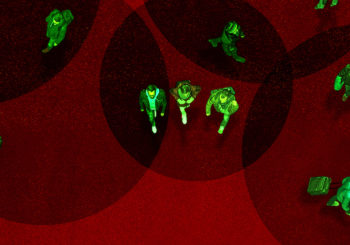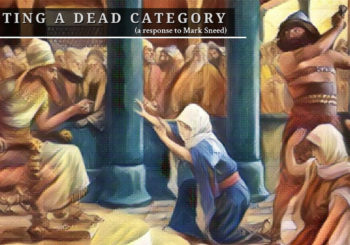‘Wisdom Literature’ Is Not Dead Yet: A Response to Will Kynes
I have already reviewed Will Kynes’s book, An Obituary for “Wisdom Literature,” in many ways magisterial, elsewhere.1Mark Sneed, review of An Obituary for “Wisdom Literature”: The Birth, Death, and Intertextual Reintegration of a Biblical Corpus, by Will Kynes, The Journal of Theological Studies 71/1 (2020): 303–306, https://doi.org/10.1093/jts/flaa023 I am here mainly responding to his recent article for the Center for Hebraic Thought. My response is essentially that the term “wisdom literature” is an appropriate heuristic categorization for the books of Proverbs, Job, Ecclesiastes, and like literature. Two of Kynes’s premises are especially faulty, which I will argue invalidates his contention that we would be better off eliminating the categorization “wisdom literature.” First, that the term “wisdom literature” is suspicious because it can’t be found before the 19th century. Second, that the term “wisdom literature” is suspect because the person(s) who created it brought to it ideological assumptions that today are quite problematic on numerous levels.
Enjoying this article? Read more from The Biblical Mind.
Before launching this response, I think it is important to distinguish between genres and modes or types of literature.2See Alastair Fowler, Kinds of Literature: An Introduction to the Theory of Genres and Modes (Cambridge, MA: CUP, 1982). Technically, the term “wisdom literature” does not represent a genre but a mode of literature. Examples are the satiric, the ironic, the comic, the pastoral, and the didactic modes. For the Hebrew Bible, examples would include the prophetic, apocalyptic, legal, hymnic, erotic, historical, and, last but not least, wisdom literature. Thus, modes of literature operate on a higher level of abstraction than do genres. In a sense, one could say that modes of literature function as macro-genres. In the following, so, to clarify matters, I will no longer refer to the wisdom literature as a genre but as a mode.
As for the first premise, Kynes essentially argues that since the categorization “wisdom literature” did not arise until the 19th century in Germany, then we should question its feasibility and usefulness in categorizing an ancient mode of literature. Kynes makes much of the fact that in the ancient and medieval worlds, no such grouping of the three books can be found, and, also, that the term “wisdom literature” or its ancient equivalent is never found in the history of the reception of these books.
First of all, in response, it is possible, even probable, that modern scholars are seeing a legitimate patterning and a relationship between these three books that the ancients just did not. The fact is we have no emic categorizations of literature for the Hebrew Bible, period. So, if “wisdom literature” is suspicious, so should terms like the Pentateuch or Torah, legal material, prophetic, apocalyptic, poetic, hymnic, erotic, and historical literature. These are all technically etic terms for modes of literature that biblical scholars find useful today. They represent categorizations coming centuries or even millennia after the compositions by the original authors.
Secondly, and more fundamentally problematic, is that Kynes goes too far when he suggests that this 19th century term is simply an invention by Bruch.3Kynes, An Obituary, 86. There is ancient evidence that points to the term’s feasibility and reasonableness, which Kynes, in fact, supplies, in his book. Basically, what Bruch does is reapply the traditional patristic grouping of these texts as philosophical, as, for example, in the case of Origen. Origen creates a “Solomonic” corpus that he views as philosophical (except Job). I would call the three books folk-philosophical,4See Jaco Gericke, The Hebrew Bible and Philosophy of Religion, SBL Resources for Biblical Studies 70 (Atlanta: SBL, 2012), 154–57 for they are quite a bit detached from the ancient Greek philosophy we are familiar with, yet they treat the domains of ethics (Proverbs) and the problem of evil (Job and Ecclesiastes). Of course, Job and Ecclesiastes are also concerned with ethics, but their distinction from Proverbs is in treating the problem of evil, both philosophical topics.
It is true that Origen leaves out Job, but this is probably due mainly to the fact of the book’s less than philosophical overall genre, attributable to its framing, as a narrative, distinctive from the more proverbial character of Proverbs and Ecclesiastes. But this leads to another important point about how the three books were grouped in pre-modern times. In the various historical groupings that Kynes discusses, Proverbs is always either paired with Ecclesiastes, usually, or, sometimes, Job, though never both. This points clearly to Proverbs serving as the prototypical text, which shares a relationship to both Ecclesiastes and Job. Prototype theory, then, explains why the three books were never all grouped together and exclusively, by pre-modern scholars. It is because Job and Ecclesiastes share a prototypical relationship with Proverbs but less so with each other. Job appears to be really the odd book in, more a cousin than within the family of related texts. What I am saying is that just because we don’t have the three books ever grouped together exclusively in the pre-modern world, doesn’t in itself disqualify this label and categorization. And prototype theory explains this lack of consistency and allows for the strong possibility that the three books share an important relationship.
A third factor that should be considered is that with the relatively recent discovery of numerous ancient Near Eastern texts, many share a remarkable degree of comparability with the biblical “wisdom literature,” both formally and content-wise. These include fables, parables, instructions (the Egyptian categorization sb:yt used to identify the genre of Prov 1-9), testimonies, collections of aphorisms (or proverbs?), dialogues/debates, reflections on death and the problem of theodicy, etc. Ancient Near Eastern scholars acknowledge this patterning and have adopted the term “wisdom literature” for treating the respective literatures.5The following, though sometimes finding liabilities with the using the term “wisdom literature,” either use it or a comparable term like “didactic literature”: Paul-Alain Beulieu, “The Social and Intellectual Setting of Babylonian Wisdom Literature,” in Wisdom Literature in Mesopotamia and Israel, ed. Richard Clifford, Symposium Series 36 (Atlanta: Society of Biblical literature, 2007), 3-19; Yoram Cohen, Wisdom from the Late Bronze Age, Writings from the Ancient World 29 (Atlanta: Society of Biblical Literature, 2013); See W. G. Lambert, Babylonian Wisdom Literature (Oxford: OUP, 1960; repr., Winona Lake, Ind.: Eisenbrauns), 1; Miriam Lichtheim, “Didactic Literature,” in Ancient Egyptian Literature: History and Forms, ed. Antonio Loprieno, PAe 10 (Leiden: Brill, 1996), 243-62; Kenneth Kitchen, “Proverbs and Wisdom Books of the Ancient Near East: The Factual History of a Literary Form,” Tyndale Bulletin 28 (1977): 69-114; the only true detractor is Georgio Buccellati (“Wisdom and Not: The Case of Mesopotamia,” Journal of the American Oriental Society 101 [1981]:35-47), who argues that since wisdom themes are found outside the Mesopotamian wisdom corpus, it shouldn’t be used; he does, however, refer to a wisdom cultural phenomenon that is reflected in Mesopotamian literature. This would seem to confer legitimacy to Bruch’s mid-19th century categorization as appropriate and not simply a modern invention.
In addition, there are not only recognized patterns or modes of literature, like wisdom literature, but also specific social settings connected to these modes that scholars have identified. Like genres, modes of literature have work to do; they are social phenomena,6See John Frow, Genre, New Critical Idiom (London: Routledge, 2005), 75-77, 85-87. and, so, one cannot treat them abstractly as nebulous patterns discerned only by modern readers. How modes of literature were utilized by ancient scribes is really the most important question. David Carr has convincingly argued that the modes of literature found in the Hebrew Bible were originally used in the training of scribes before becoming part of Scripture for the Synagogue and then Church.7David M. Carr, Writing on the Tablet of the Heart: Origins of Scripture and Literature (Oxford: OUP, 2005); cf. Karel van der Toorn, Scribal Culture and the Making of the Hebrew Bible (Cambridge, MA: HUP, 2007). Scribes represent the tiny percentage of persons who could read and write in the respective languages and served as the intellectuals of their cultures. In fact, they often served as governmental officials whose literary skills would have been in high demand.8See my Social World of the Sages: An Introduction to Israelite and Jewish Wisdom Literature (Minneapolis: Fortress, 2015), 1-296.
As to the particular niche that wisdom literature contributed in the formation of scribes is a matter of speculation. There is archaeological evidence that aphorisms (or possibly proverbs) were used specifically to teach Mesopotamian scribes in linguistic proficiency and perhaps rhetoric, early in their schooling.9See Bendt Alster, Proverbs of Ancient Sumer: The World’s Earliest Proverb Collection, 2 vols. (Bethesda, MD: CDL, 1997), 1: xviii-xix; Nick Veldhuis, “Sumerian Proverbs in their Curricular Context,” Journal of the American Oriental Society 120 (2000): 383-87. And I have also speculated that the biblical wisdom literature functioned among Israelite scribal schools to reinforce moral and social norms, assuming that an immoral scribe would have been viewed as practically useless in the broader society,10Sneed, Social World of the Sages, 188-215. and perhaps also as a way for the scribal elite to compete with the other social classes in ancient Israelite, in terms of piety and wisdom as social capital.11Mark Sneed, “A Taste for Wisdom: Aesthetics, Moral Discernment, and Social Class in Proverbs,” in Imagined Worlds and Constructed Differences, ed. Jeremiah Cataldo, Library of Hebrew Bible/Old Testament 677 (London: T&T Clark/Bloomsbury, 2019), 111-26. But, for whatever reasons, scribal teachers, throughout the ancient Near East, believed that wisdom or didactic literature was essential for the training of novice scribes.
And, so, to conclude this critique of the first premise that Kynes makes, regarding the notion of “wisdom literature” as a 19th century invention, yes, it is a modern term, but it has enough ancient resonances to be viewed as fitting and not a distortion. And, again, I have provided evidence that demonstrates that the modern term comes close to ancient categorizations, such as a type of “philosophical” literature, especially if prototype theory is applied. That current ancient Near Eastern experts, as well as biblical scholars, have seen the three books as resonating remarkably with other ancient Near Eastern “philosophical” literature adds further support for keeping the modern categorizing label. That current ancient Near Eastern scholars feel comfortable enough to still use it to analyze their own respective “wisdom” corpora also pushes the evidence toward the implication that Bruch’s “invention” is not far off the mark.
As for the second critique, Kynes goes beyond the term’s modernity here to its association with ideological assumptions of its creators. In other words, the term “wisdom literature” is suspect because of the ideological assumptions that Bruch and the other 19th century German scholars attach to the term and the corpus. It should be plain that these ideological assumptions are technically separate from the term itself and the corpus. But Kynes connects them, so as to discredit the term. Here Kynes is coming very close to committing the genetic fallacy, even if he tries to consciously avoid it.12Kynes, An Obituary, 98-99. Kynes’s argument is much like those who have tried to discredit the Documentary Hypothesis because Wellhausen and the other Germans who helped formulate the theory were often antisemitic. The Documentary Hypothesis stands or falls on its own based on how well it explains the compositional character of the Torah, not on whether its formulators were ideologues simultaneously.
With the notion of the “wisdom literature,” however, we are not even dealing with a theory or construct. It is simply a categorizing label for a what modern scholars have viewed as forming a corpus. Nothing more or less. What this means is that Kynes is actually not critiquing the notion of a “wisdom literature” per se but the often distorting assumptions that scholars bring to the term and corpus, what I and others have called the “wisdom tradition.” Thus, I argue that Kynes is really deconstructing the “wisdom tradition” and not the “wisdom literature.” The “wisdom tradition” is a construct, and it is distorting. Here both Kynes and I agree. I have argued that the consensus view of the “wisdom tradition” involves a reification of the “wisdom” corpus into something entirely different.13Mark Sneed, “Is the ‘Wisdom Tradition’ a Tradition?” Catholic Biblical Quarterly 73/1 (2011): 50-54. It involves artificially hermetically sealing off this corpus from the rest of the Hebrew Bible and then extracting a distinctive “worldview” from it that is seen as representing a group of professional sages who were at odds with both priests and prophets (the other authors of the Hebrew Bible, according to many scholars). In my article, I argued against the notion of a distinct wisdom “tradition” but not against the usage of the label “wisdom literature.” Thus, whatever distorted views scholars have attached to the corpus14Most scholars in the recent volume I edited, Was There a Wisdom Tradition? New Prospects in Israelite Wisdom Studies, Ancient Israel and Its Literature 23 (Atlanta: SBL Press, 2015), are representative of this non-reifying approach. and moniker “wisdom literature” should not discredit the continued use of the latter.
Finally, I want to briefly discuss one of the ideological assumptions that Kynes rightly addresses that the 19th century German scholars associated with the three books: its non-Israelite or less than sectarian character. Kynes is right to note that there were probably antisemitic reasons why the Germans latched on to this trait within the three books. But, again, this in itself doesn’t invalidate the significance of the corpus or the label. I have argued that this feature of the three books, its “universalism,” is actually one of its modal conventions due to its being folk-philosophical literature.15Sneed, “Wisdom Tradition,” 71; idem, Social World, 213-14. This is true of ancient Greek philosophical literature as well, part of its rhetoric. Philosophical literature that is highly sectarian loses its credibility. The universalism means that the truths that a piece of literature promotes is true for every human being, not for some select nation or group. Universalism is a common type of rhetoric and often used for ideological purposes.16See Terry Eagleton, Ideology: An Introduction (London: Verso, 1991), 56-58. For the biblical wisdom literature, I would call this trait a modal convention: it’s one of the “rules” the mode follows, that helps construct it, much like the convention of “things going bump in the night” for horror movies. What the Germans did, in the 19th century, is indeed rightly perceive this convention but then latch on to it to promote their own ideological concerns. But this does not invalidate the fact that the three books promote a more universal perspective because of the folk-philosophical mode they participate in.
And just because a large segment of wisdom experts, still most likely forming a consensus, views the wisdom literature as representing a wisdom “tradition,” with all kinds of arguably distorting assumptions, does not necessitate the giving up of the former terminology or the notion of the corpus. Several modern wisdom experts regularly use the term “wisdom literature” without the baggage that Kynes is claiming is attached to it or the corpus. In this sense, Kynes is attacking a “straw man.” The label and the corpus isn’t the boogie man. It’s the baggage scholars illegitimately attach to the term and categorization: the meaning they attach to the categorization, which is separate from it.
Thus, Kynes, while providing a good critique of the notion of a wisdom “tradition,” a reifying interpretation of the biblical wisdom literature, has overstated his case, causing him to “throw the baby out with the bathwater,” eliminating the categorization as well. The concept of “wisdom literature” used by biblical scholars is still a helpful, heuristic categorization that aids us in better understanding the nature of a mode of literature that is folk-philosophical and was regarded as highly important within the institution of scribalism and its curricula in Israel and, more broadly, the ancient Near East.
End Notes
1. Mark Sneed, review of An Obituary for “Wisdom Literature”: The Birth, Death, and Intertextual Reintegration of a Biblical Corpus, by Will Kynes, The Journal of Theological Studies 71/1 (2020): 303–306, https://doi.org/10.1093/jts/flaa023.
2. See Alastair Fowler, Kinds of Literature: An Introduction to the Theory of Genres and Modes (Cambridge, MA: CUP, 1982).
3. Kynes, An Obituary, 86.
4. See Jaco Gericke, The Hebrew Bible and Philosophy of Religion, SBL Resources for Biblical Studies 70 (Atlanta: SBL, 2012), 154–57.
5. The following, though sometimes finding liabilities with the using the term “wisdom literature,” either use it or a comparable term like “didactic literature”: Paul-Alain Beulieu, “The Social and Intellectual Setting of Babylonian Wisdom Literature,” in Wisdom Literature in Mesopotamia and Israel, ed. Richard Clifford, Symposium Series 36 (Atlanta: Society of Biblical literature, 2007), 3-19; Yoram Cohen, Wisdom from the Late Bronze Age, Writings from the Ancient World 29 (Atlanta: Society of Biblical Literature, 2013); See W. G. Lambert, Babylonian Wisdom Literature (Oxford: OUP, 1960; repr., Winona Lake, Ind.: Eisenbrauns), 1; Miriam Lichtheim, “Didactic Literature,” in Ancient Egyptian Literature: History and Forms, ed. Antonio Loprieno, PAe 10 (Leiden: Brill, 1996), 243-62; Kenneth Kitchen, “Proverbs and Wisdom Books of the Ancient Near East: The Factual History of a Literary Form,” Tyndale Bulletin 28 (1977): 69-114; the only true detractor is Georgio Buccellati (“Wisdom and Not: The Case of Mesopotamia,” Journal of the American Oriental Society 101 [1981]:35-47), who argues that since wisdom themes are found outside the Mesopotamian wisdom corpus, it shouldn’t be used; he does, however, refer to a wisdom cultural phenomenon that is reflected in Mesopotamian literature.
6. See John Frow, Genre, New Critical Idiom (London: Routledge, 2005), 75-77, 85-87.
7. David M. Carr, Writing on the Tablet of the Heart: Origins of Scripture and Literature (Oxford: OUP, 2005); cf. Karel van der Toorn, Scribal Culture and the Making of the Hebrew Bible (Cambridge, MA: HUP, 2007).
8. See my Social World of the Sages: An Introduction to Israelite and Jewish Wisdom Literature (Minneapolis: Fortress, 2015), 1-296.
9. See Bendt Alster, Proverbs of Ancient Sumer: The World’s Earliest Proverb Collection, 2 vols. (Bethesda, MD: CDL, 1997), 1: xviii-xix; Nick Veldhuis, “Sumerian Proverbs in their Curricular Context,” Journal of the American Oriental Society 120 (2000): 383-87.
10. Sneed, Social World of the Sages, 188-215.
11. Mark Sneed, “A Taste for Wisdom: Aesthetics, Moral Discernment, and Social Class in Proverbs,” in Imagined Worlds and Constructed Differences, ed. Jeremiah Cataldo, Library of Hebrew Bible/Old Testament 677 (London: T&T Clark/Bloomsbury, 2019), 111-26.
12. Kynes, An Obituary, 98-99.
13. Mark Sneed, “Is the ‘Wisdom Tradition’ a Tradition?” Catholic Biblical Quarterly 73/1 (2011): 50-54.
14. Sneed, “Wisdom Tradition,” 71; idem, Social World, 213-14.
15. See Terry Eagleton, Ideology: An Introduction (London: Verso, 1991), 56-58.
16. Most scholars in the recent volume I edited, Was There a Wisdom Tradition? New Prospects in Israelite Wisdom Studies, Ancient Israel and Its Literature 23 (Atlanta: SBL Press, 2015), are representative of this non-reifying approach.
Subscribe now to receive periodic updates from the CHT.





